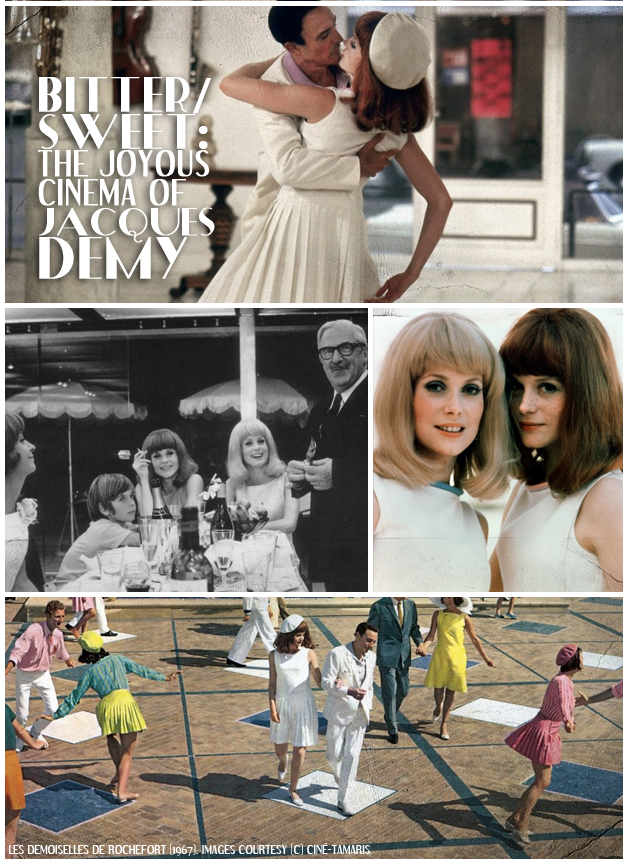In honour of the duality of fleeting summer romances (of which are currently speeding through their life cycle) the Toronto International Film Festival (TIFF) has released a retrospective — Bitter/Sweet: The Joyous Cinema of Jacques Demy — celebrating the work of late Parisian cinema mastermind, Jacques Demy
On now until July 20th, the retrospective, includes some of Demy’s most famed classics such as notably, the once long unavailable Une Chambre en Ville (1982) — a singular contemporary musical in which every line is sung, as the narrative follows the personal relations between workers during a strike, as well as the whimsical Les Demoiselles de Rochefort (1967). Beloved by Demy fans, TIFF’s retrospective offers the perfect accompaniment to a screening of the classic with its presentation of Les Demoiselles Ont Eu 25 Ans (1993), an ode to the film 25 years after its theatre premiere, directed by the filmmaker’s widow, Agnes Varda.
Also screening is the insightful documentary, L’univers de Jacques Demy (1995), also directed by Varda. Channeling the vibrancy of Demy, the documentary paints a dramatic portrait of Demy’s extensive cinematic career, and features several restorations, new prints, and never before seen rarities of his work. The documentary includes the reminiscence and remembrance of past co-workers and colleagues who had the pleasure of collaborating with the cinema legend.

The Demy love-fest continues on through to August 20th, with a sidebar to Bitter/Sweet: The Joyous Cinema of Jacques Demy. Titled Paradise Regained: Jacques Demy, the series includes screenings of the major cinematic works that influenced the director such as Nicholas Ray’s Johnny Guitar (1954) and Le Carosse d’Or (1952) by acclaimed director, Jean Renoir, whose influential body of work dates back to the Silent Era.
A self-proclaimed auteur, Jacques Demy’s film narratives directly correlated with creative influences that penetrated his life and personal perspective. Though the director’s creative process was greatly influenced by the political aspect of things, much of his work mimicked enchanting dream worlds, utopian situations, and colourful imaginings, all of which captured the man himself. From these captivating creative reveries, came a breed of cinema that shared with its audience a slightly off-centered, yet intoxicating world-view, one which continues to mesmerize audiences today.











